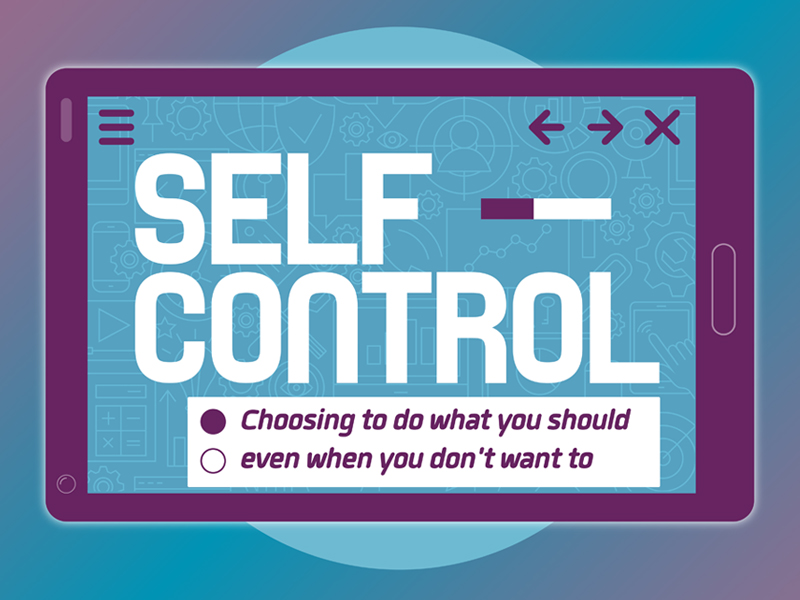
Parents, how would Jesus respond?

As parents, one of our goals in life is to raise, godly, well-behaved, respectful and disciplined children. This task is a gift from God that we cannot handle by ourselves.
How many times do you find yourself doing exactly what you just told your child not to do? You know who will be the first to point it out too… them! As you sit there fuming with anger because of the disrespect and back talk about the issue, you have to breathe and ask yourself, “how would Jesus react?”
Wow…how would Jesus respond? That’s a stop-you-in-your-tracks moment. I would have to say that many times I have not responded how Jesus would.
Proverbs 22: 6 ESV
Train up a child in the way he should go; even when he is old he will not depart from it.
Proverbs 11: 2 ESV
When pride comes, then comes disgrace, but with the humble is wisdom.
When we hear “practice what you preach,” we often think of the moral decisions and guidance we speak of: be kind to others, share your toys, brush and floss your teeth, don’t litter. Those are all things that we should be practicing, but how can we tell our kids to do those things if we ourselves are not doing them?
Philippians 3: 14 NIV
Brothers and sisters, I do not consider myself yet to have taken hold of it. But one thing I do; forgetting what is behind and straining toward what is ahead. I press on toward the goal to win the prize for which God has called me heavenward in Christ Jesus.
Let’s challenge ourselves to focus on Christ. If we as parents are not focused on him and making him number one in our lives, then how in the world do we expect our children to do so?
Practice first, then they will see with their eyes what is important. Then preach it so they can be challenged to do the same. Again no one is perfect and bumps in the road will come, but how we respond and steer our children during those times will help them grow closer to Him.
Read more...

A Counter-Cultural Fruit of the Spirit

Self-control is a 24/7 challenge and involves every area of life.
The first thing I think of regarding self-control is controlling the urge to say or do something without taking the time to think about what the consequences will be. The Bible has many lessons about how difficult it is to control our tongues. Self-control is even more important when we feel anger because we are more likely to say or do something hurtful. Everyone has different areas they need to be careful in, but apparently not thinking before we talk is a common human flaw, because God warns us over and over again to control our tongues.
Of all the many verses in the Bible about controlling out tongues, my favorite is James 3:2:
Indeed, we all make many mistakes. For if we could control our tongues, we would be perfect and could also control ourselves in every other way.
Self-control requires making “self” less important and considering what others say or need.
Considering others to be more important than self is contrary to the “looking out for yourself” philosophy that is promoted in today’s culture.
Self-control is a daily walk where we stop and think about each situation we find ourselves in. We need to ask ourselves how Jesus would respond. We need to surrender control of our self to God and let his Spirit direct our response.
Marriage is an essential place to put this into practice.
Unfortunately, I am oftentimes not good at recognizing when God is gently trying to get my attention. I’m not very good at picking up quiet, subtle hints. Since it is easier to see the faults of others easier than to see our own, God sometimes uses that to get my attention. Instead of being critical of the failures of other people, we need to use each situation to evaluate ourselves and make sure our responses reflect what God wants from us. No matter how good or self-disciplined we are, we all need God and his Spirit to open our eyes to our needs and of those around us.
The Pharisees blew it.
Growing to be whom God wants us to be can be confusing and difficult. There are times it seems overwhelming because it seems like there are so many things we “should” do, and so many areas of our lives to grow in. With advice coming from many directions, it can be confusing as to what God wants us to do. At these times, I turn to one of my favorite verses about what God wants from me.
Micah 6:8 says
No, O people, the Lord has told you what is good, and this is what He requires of you; to do what is right, to love mercy, and to walk humbly with your God.” God also will give us the strength to do these things by the power of his Spirit.2 Peter 1:3 says
By his divine power, God has given us everything we need for living a Godly life. We have received all of this by coming to know him, the one who called us to himself by means of his marvelous glory and excellence.
Read more...

Defensiveness and Denial – The Two Issues of Cain – Part 2

The last time we visited the story of Cain, we looked at his issues with denial – and his refusal to acknowledge responsibility in his relationship with his brother. Today, let’s examine how denial played an even larger role in his relationship with God in Genesis 4:1 – 24.
The story opens with a brief introduction of the main characters – Cain and Abel – the two sons of Adam and Eve. When the boys become men, it’s time for them to take responsibility for their own relationships with God.
In time, they both offer sacrifices to God in worship from the fruit of their own labors. The next thing we know, God has accepted Abel’s offering of animal sacrifice but rejected Cain’s offering of grain. Cain responds to the rejection with anger and despondency. Later, he lures his brother out into a field to talk about it. In a moment of rage he strikes him, killing him.
I used to struggle just a bit with a small sense of injustice for Cain’s sake. How was he supposed to know God didn’t want an offering of vegetables? After all, God instituted a grain offering years later through Moses (Leviticus 2:1 – 15). Besides, this came from him and what he was good at doing. It kind of feels like the parent who doesn’t accept a small child’s art project because it wasn’t good enough.
Thing is, Cain knew exactly what he was doing. He was worshiping God on his own terms without care or concern for how God would feel about it. That’s not a healthy relationship. Let me explain…
The expulsion from Eden would have been far more devastating for his parents than we might think. The exclamation point of watching two animals get slaughtered to cover the nakedness of their lives after sin might have been far more personal than we realize… they weren’t likely just farm animals.
God’s covenantal relationship with them was established and sealed with blood, and Cain would have known the story all too well. For Cain, worshiping God on his own terms carries at least some similar characteristics to his parent’s sin. Cain wanted to be in control of the terms of the relationship rather than submitted to the expectations of someone else (God) like his brother, Abel.
Taking control places him beside God, which is similar to the enemy’s sin as well.
Even then, in a moment of mercy, God beckons Cain to see where he is, and to reach out in trust to Him when He says, “7If you do what is right, will you not be accepted? But if you do not do what is right, sin is crouching at your door; it desires to have you, but you must rule over it.” (Genesis 4:7 NIV)
Denial keeps us from recognizing where we truly are by keeping us focused on only ourselves… our rights… our own version of justice or fairness. It keeps us from hearing the heart of someone else and finding the path to wholeness. Whenever that happens, both people are robbed of life. Often times, those effects play out in the lives of others in the vicinity.
Take a moment and ask yourself if you’re trying to be in control.
It may help you realize whether you’re in denial in your relationship with God and/or someone else in your life.
God was indeed reaching back to Cain. If only he had noticed God’s compassion before he crossed a line that stole Abel’s life… a theft that affected his parents, himself and all the members of the family he was about to have.
Read more...

Defensiveness and Denial – The Two Issues of Cain

“Am I my brother’s keeper?” (Genesis 4:9)
Most all of us have seen that before. Typically, we recognize the look of that in someone else and at the same time linger in denial of its presence in our own lives.
Dealing with someone who turns away with Cain’s indifference can hurt beyond description. Be careful not to return the favor. It will only hurt you further. Cry out to God with your hurt. Call a trusted pastor, friend or counselor who will help you to find God’s healing.
On the other hand, dealing with lingering denial requires a blatant honesty, and that only comes by great effort to control self-protective tendencies. There’s really only one solution to this. Turn toward both the One who is confronting (ultimately) and the only One who is big enough to help you beyond yourself. Essentially, that’s choosing to do what you should even when you don’t want to.
Read more...

Embracing Humility

– Be like minded
– Have the same love
– Being one in the spirit and of one mind
– Do nothing out of selfish ambition or vain conceit
– Not looking to your own interests but to others
-To love our brothers and sisters in Christ,
-In unity, to cleave to the same mindset as Jesus
-To embrace being of one spirit,
-To put ourselves aside for the wellbeing of others
Read more...

Faith of the Next Generation

Deuteronomy 4:9 reads, “Only be careful, and watch yourselves closely so that you do not forget the things your eyes have seen or let them fade from your heart as long as you live. Teach them to your children and to their children after them.”
-can forget who and what must be first
-can take the easy way out
-can grieve the Holy Spirit
Read more...
